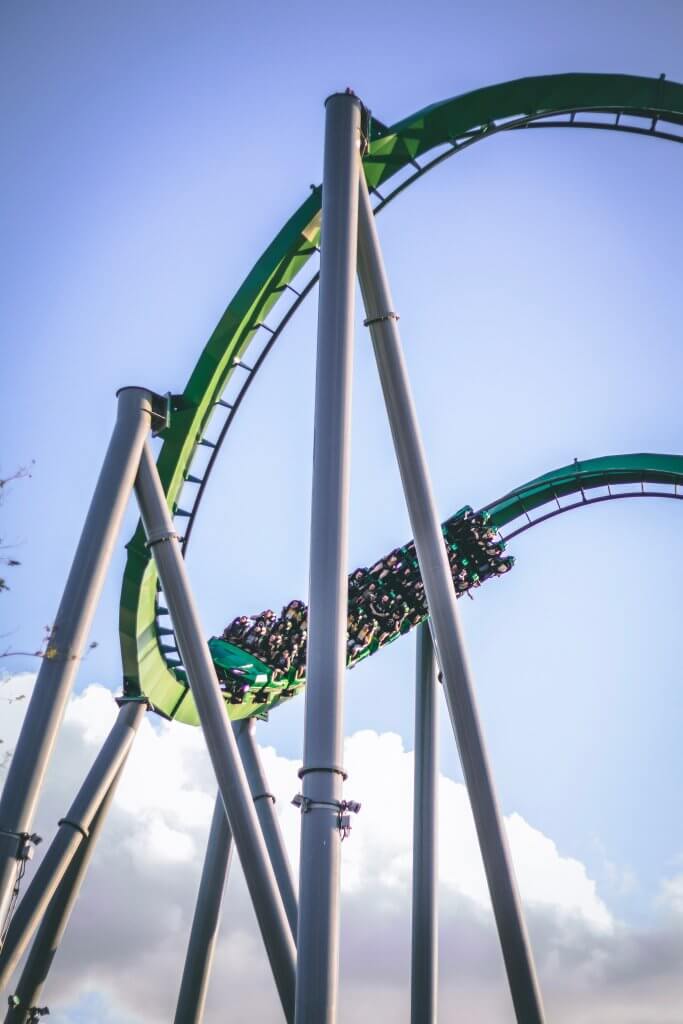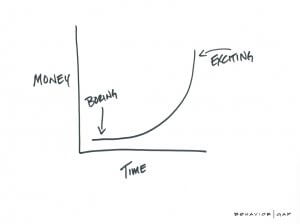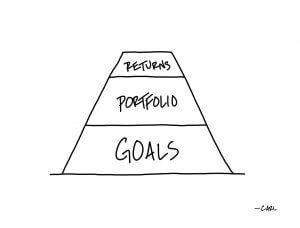
Monorails & Roller Coasters
Investment ManagementJul 28, 2022
As we enter the home stretch of summer and people are once again taking trips to amusement parks and boardwalks, we wanted to revisit the following analogy in discussing market conditions: markets are like a very long ride at an amusement park. Most of the ride is pretty boring, like the monorail. However, now and then it turns into a wild roller coaster and then back again without any warning. While the summer of 2020 through the end of last year felt like a calm ride in the stock market, 2022 has been an intense roller coaster leaving many investors feeling dizzy. While it has certainly not been a calm and orderly market environment this year, the truth is this is how cycles tend to work at a high level. Cullen Roche put it well in an investor note: people get greedy, then they get really greedy, then they get fearful and then they get really fearful. Timing all of this is damn near impossible, but while the causal factors are always “different this time”, the one constant that’s never different this time is human emotion.” This is something we always come back to in this blog. Human reactions to unpredictable events are driven by emotion, and this is what dictates market behavior in the short-term.
In his famous book The Intelligent Investor Benjamin Graham used a metaphor to describe the behavior of markets by inventing a fictional character named “Mr. Market”. Every day, Mr. Market will knock on your door and offer you prices to buy or sell stocks based on how he is feeling. You do not have to buy or sell on any given day, because Mr. Market will come back tomorrow morning to do it all over again. Mr. Market is a nice enough guy whose prices are directionally correct most of the time, but he is also a very emotional manic depressive whose behavior can be erratic at times. He is not someone you go to lunch with or invite to a party. He has been known to cause huge scenes in public. Anyway, he shows up each day offering prices based on his mood, and you can choose to buy or sell if you would like. The idea behind the metaphor is this: while markets are mostly efficient, they can also be driven by irrational human emotions and prone to group think. At the same time, you get to choose when and how to participate.
Investor Howard Marks’ analogy for market cycles from one of his memos back in 1991 is also helpful. Think of a grandfather clock’s pendulum. “The mood swings of the markets resemble the movement of a pendulum. Although the midpoint of its arc best describes the position of a pendulum “on average,” it actually spends very little of its time there. Instead, it is almost always swinging toward or away from the extremes of its arc. But whenever the pendulum is near either extreme, it is inevitable that it will move back toward the midpoint sooner or later. In fact, it is the movement toward an extreme itself that supplies the energy for the swing back.” The point is, while the stock market has consistently returned somewhere about 7% a year on average over the last one hundred years or so (the midpoint of the pendulum), the extremes that make up this average vary widely. It’s also complete luck as to where your prime earning and savings years happen to land in these cycles. Since there is no way to predict when the big returns will come during our lifetimes (and when the volatile periods will be), we need to be able to diagnose the extremes on both ends and avoid mistakes. This is how to make sure your portfolio is able to capture the type of return you need during your wealth building years.
Understanding the concept of market cycles is straightforward, but staying disciplined through them is not. This is why thoughtful capital allocation and proactive financial planning are so important. It is about connecting the markets with what is going on in your life and using Mr. Market’s mood swings to your advantage. Investing is not an isolated exercise, but one that should constantly consider your individual situation and how it may change. Where are you taking your risk? Is it with money you may need soon? Are there tax consequences? What investment vehicle makes the most sense? How will fees impact your overall return? Have you invested in your money in a way that won’t impact your quality of life in a downturn? If the first half of the year reminded us of anything, it’s that we don’t want to be asking these questions when Mr. Market is on our front porch having a nervous breakdown.
Citations
The Intelligent Investor, Benjamin Graham, 1949
Three Things I Think I Think – The More Things Change the More They Stay the Same, Cullen Roche- Pragmatic Capitalism, June 2, 2021
The Happy Medium (memo), Howard Marks- Oaktree Capital, July 20, 2004
Mastering the Market Cycle: Getting the Odds on Your Side, Howard Marks, 2018


